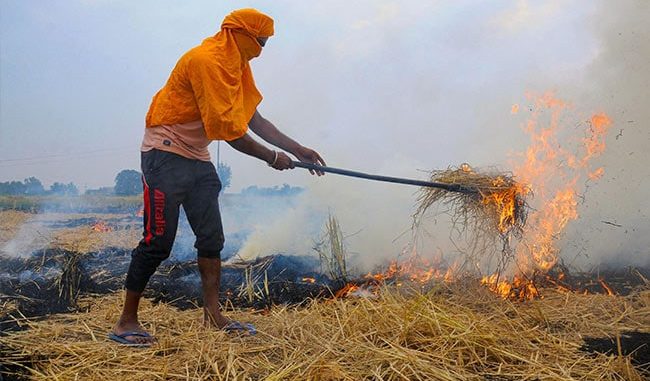
In News
A new Commission was formed to track and combat air pollution in the National Capital Region.
In-Detail
- The President of India signed the Ordinance for the Commission for Air Quality Management in Delhi and Adjoining Areas.
- It will be a statutory committeeto track and combat air pollution in and around the National Capital Region.
- The Commission is aimed at better coordination, research, identification, and resolving problems surrounding air pollution in North India.
- The new Commission will guide the bodies such as state and central pollution control boards of Delhi, Uttar Pradesh, Punjab, Haryana and Rajasthan.
- The Commission will have powers to direct the state governments on issues related to air pollution.
- Only NGT is authorized to hear cases related to the Commission.
Composition of the Commission
It will be an 18-member commission headed by a full-time chairperson.
The Chairperson will be a former or serving secretary to the Government of India or a Chief Secretary to a state.
The other members include –
- A representative from the Environment Ministry
- Five ex-officio members from the States mentioned in the Ordinance
- Two full-time members who are either serving or former joint secretaries
- A technical member each from the Central Pollution Control Board and Indian Space Research Organisation
- One member from Niti Aayog
- Three independent members
Role of The Commission
- The new Commission has powersthat are similar to the Environment Pollution (Prevention and Control) Authority (EPCA).
- The Commission will have state representatives.
- According to the new Ordinance States as well as Central Bodies will not have any jurisdiction in matters related to air pollution in the states mentioned in the Ordinance.
- The Commission will look at the coordination between the states, planning, execution of policy interventions, inspections, operations of industry and research into the causes of pollution.
- It will specifically monitor the actions taken by the states against stubble burning, industrial emissions, vehicular emissions, road dust, biomass burning and construction activities.
- The power to issue fines will lie with the new Commission. It has the authority to give directions for imprisonment for a maximum of five years and a fine of unto Rs. 1 crore or both. But first, the offender must be tried before a first class judicial magistrate.
- The Commission also has the power to take up matters suo motu and file a case before a first class magistrate.
- The new Commission will erase the relevance of state pollution control bodies as they do not have any power to make decisions.
- If a direction is issued by the Commission and the State clashes, the decision of the Commission will be considered.
- The Commission has a responsibility to mandatorily submit an annual report to the central government on the action-taken and research undertaken to tackle air pollution.
- The report will be presented before the Parliament.
- The Commission also has the power to make regulations, but prior approval of the Central Government is required. Further, the regulations must be notified and must be kept before each house of the Parliament.
- The ordinance has empowered the new Commission to form Special Investigative Groups for stricter implementation of its directions. This was the major lacuna in Supreme Court formed EPCA.
EPCA
- Environment Pollution (Prevention and Control) Authority (EPCA) was set up by the orders of the Supreme Court.
- EPCA is not a statutory body but has the authority to deal with the cases of air pollution as part of the judgment in M C Mehta vs Union of India (1988).
- EPCA was not supported by a legal framework but has the authority to issue fines, directions and guidelines to the government in other states other than Delhi NCR.
- EPCA played a crucial role in drafting the long-term Comprehensive Action Plans (CAP) for combating air pollution.
- It had only two permanent members and no state representatives.
- The achievements of EPCA starting 1998 was the phase-wise replacement of Delhi’s public transport fleet from diesel to CNG, the rollout of the BS-VI grade fuel and emission standards, recommended building two bypasses to move traffic not destined to Delhi.
- The BS-VI fuel has 80% less Sulphur content than BS-IV.
- The two bypass roads are now known as Eastern and Western Peripheral Expressways.
- Some other measures taken by EPCA include setting up standards for Sulphur dioxide and oxides of nitrogen, ban on pet coke and furnace oil in NCR regions and closing the Badarpur power plant in Delhi.
- With the promulgation of the Ordinance, the 22-year old EPCA will be dissolved.

Leave a Reply
You must be logged in to post a comment.